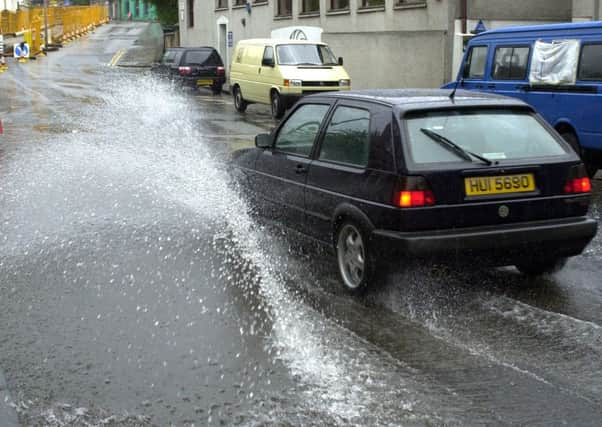Scots motorists are UK’s most inconsiderate drivers


A Freedom of Information request to all 45 police forces in Britain showed that 5,472 motorists had been stopped for inconsiderate driving since changes came into force in August last year.
A total of 1,454 of those were caught on Scottish roads, the most of any police force area, although the Police Scotland area is larger than any other in the UK.
Advertisement
Hide AdAdvertisement
Hide AdMotoring groups have welcomed overall the clampdown on bad driving habits, which includes accelerating through a puddle or mounting a kerb, saying the new regulations would cut accident rates and raise driving standards.
The offences attract on-the-spot fines of up to £100 from police and three penalty points on a driver’s licence, which can be reduced if an offender takes a safe driving course.
The changes, which do not apply in Northern Ireland, bring careless or inconsiderate driving offences into line with the penalties for similar non-motoring fixed penalties.
Among the offences grouped under the “inconsiderate driving” law are: driving too close to the vehicle in front; failing to give way at a junction (not requiring evasive action by another driver); being in the wrong lane and pushing into a queue on a roundabout, and failing to observe lane discipline by needlessly hogging the middle or outside lanes.
Previously, such motoring offences had gone unpunished because of the bureaucracy involved, such as the issuing of a court summons and presenting of evidence in court, in taking a case to court.
In second place behind Scotland was Nottinghamshire, a comparatively small region, with 977 offenders, according to figures obtained by motoring magazine Auto Express.
Neil Greig, of the Institute of Advanced Motorists, said: “Since Police Scotland were formed, they have issued a lot more traffic-related tickets, so Scottish motorists should be aware by now that there’s been a big push on enforcement.”
He said, however, that, while this push was to be welcomed, the acid test would be when the figures for traffic accidents and deaths for the past year were published.
Advertisement
Hide AdAdvertisement
Hide AdOnly if there was some sign of further downward pressure on these, Mr Greig added, would the new legislation be considered successful.
Professor Stephen Glaister, director of the RAC Foundation, said: “The encouraging thing is that this new law is being used by police. The long-term test is whether accident rates fall.”
Chief Constable Suzette Davenport, of the Association of Chief Police Officers, said: “Officers have found the new procedures helpful as they seek to raise standards of driving and keep road users safe.”